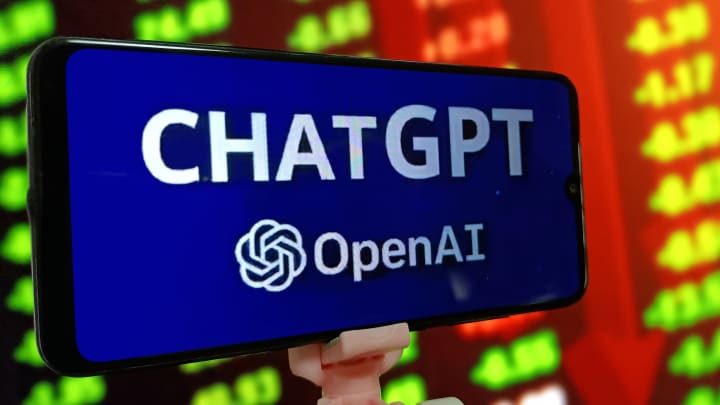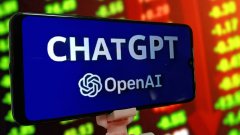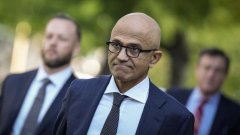
U.S. tech giants added $2.4 trillion to their market capitalizations in a year defined by the hype around generative artificial intelligence, according to a new report from venture capital firm Accel.
Accel, in its annual , said the share price values of big technology firms such as , , Alphabet, and rose by an average of 36% year over year.
Nvidia for the first time, with the U.S. chip giant now worth over $1 trillion. Nvidia's high-performance chips power many advanced generative AI models, which produce new content from huge volumes of training data.
Accel's Euroscape index, which includes massive cloud and software-as-a-service (SaaS) names such as , and Unity, rose 29% in the year to date.
Last year, the picture for cloud and SaaS was grim. Companies saw $1.6 trillion wiped off their value as investors rotated out of high-growth tech stocks, according to Accel. Now, there are signs the pressure is easing.
The tech-heavy Nasdaq Composite returned to 80% of its all-time high within 18 months, according to Accel, marking a faster bounce back than than after the dotcom bust in the 1990s.
It took the Nasdaq around 14 years to reach that milestone, Accel said.
Public multiples for Euroscape companies are also back to a 10-year pre-Covid average of 7.1-times next-twelve-months revenue. Funding for cloud and SaaS companies in Europe, Israel and the U.S. has also reverted to pre-Covid levels.
"We are in a very different time than 2000," Botteri told CNBC.
"If you look back at 2000, it really took a long time … for the Nasdaq to get back to 80% of its peak. And now, after the 2021 reset, it only took 18 months to get there."
AI was the primary technology driving the performance of cloud and SaaS in 2023, according to Accel — and it's not difficult to see why.
The world has been abuzz with talk about generative AI tools like OpenAI's ChatGPT, Google's Bard and Anthropic's Claude.
"Generative AI is something that is really redefining software," Philippe Botteri, partner at Accel, told CNBC on a call Friday.
"Any software company is leveraging generative AI, whether they're just a startup or a new company or an existing company ... You should really think about this as something that is pervasive."
The U.S. led the way in generative AI funding deals, with the likes of OpenAI and Anthropic raising billions. OpenAI raised the biggest sum — $10 billion — and Inflection came second with $1.3 billion raised.
In Europe, three of the biggest generative AI company rounds came out of France — Hugging Face ($235 million), Poolside ($126 million) and Mistral AI ($113 million).
The number of unicorn companies reverted to pre-Covid levels, with AI taking up a much greater proportion of new billion-dollar companies. In Europe and Israel, 40% of new unicorns were in generative AI; in the United States, it was 80%.
This year has been a tough one for tech, with fundraising and valuations dropping sharply as investors grew wary of the sector.
Tech companies tend to prioritize growth and expansion over short-term profits. But investors have been shifting money away from high-growth bets amid higher interest rates, which make the cost of capital more expensive.
Accordingly, the growth rates of Euroscape companies fell from an average of 68% in the first quarter of 2021 to 23% in the second quarter of 2023.
Free cash flow increased on average from -9% to +5% in the same period.
This year, deal-making activity from tech giants hit a snag as regulators clamped down on those firms over concerns that they'd become too large.
There were only 10 transactions involving a Big Tech company this year, Accel noted. That's down sharply from prior years. In 2021, acquisitions led by FAANG (Facebook, Amazon, Apple, Netflix and Google) hit 27, and in 2022 there were 26 Big Tech deals.
One deal that faced a lot of pressure from regulators was Microsoft's blockbuster bid to acquire Activision Blizzard, the massive video game studio behind hit titles "Call of Duty," "Candy Crush" and "Crash Bandicoot."
The two companies finally sealed the deal last week after British regulators gave their blessing. But that was only after a protracted fight between the two parties.



